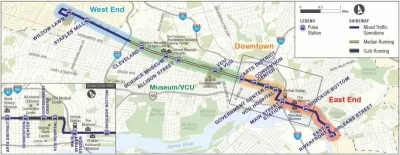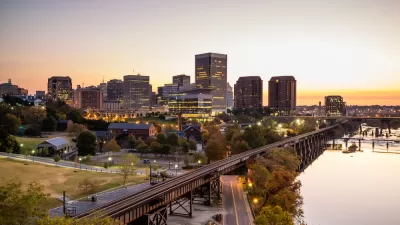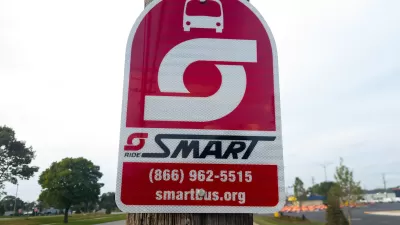Residents charge the Greater Richmond Transit Company (GRTC) with making service worse for low income residents.

The Greater Richmond Transit Company (GRTC) undertook a large-scale overhaul last year, and some think the new system unduly burdens poor residents. A report from Virginia Public Radio's WVTF spoke with resident Carmen Terrell who now faces a longer commute. "A recent redesign of the entire region’s bus system streamlines many routes, and includes a new frequent reliable line called the Pulse. But for many, including Terrell, it means more transfers and longer walks," Mallory Noe-Payne reports for WVTF.
The agency is now being sued on civil rights grounds because, plaintiffs claim, the redesign is unfair to many poor and black Richmond residents. For their part, GRTC representatives point out they have created more frequent service, and increased accessibility of the city. According to GRTC, any routes have seen decreased headways and where routes were cut or changed it was because the ridership there didn’t justify the service. At the same time, "Research out of Virginia Commonwealth University confirms that many low-income residents were negatively affected by the redesign." The same report also says bus routes expanded overall access to the system. Access improvements mean more people can get to points of interests more quickly and more access could make the service more attractive to “choice riders” who could pick bus transit over some other option.
The question: Did the GRTC sacrifice the service quality for those who need transit the most, to get those improvements?
The reviews of the GRTC bus system were much more positive earlier this year, when GRTC was reporting improved ridership figures.
FULL STORY: Bus Redesign Prompts Question: Who is Public Transportation For?

Trump Administration Could Effectively End Housing Voucher Program
Federal officials are eyeing major cuts to the Section 8 program that helps millions of low-income households pay rent.

Planetizen Federal Action Tracker
A weekly monitor of how Trump’s orders and actions are impacting planners and planning in America.

Ken Jennings Launches Transit Web Series
The Jeopardy champ wants you to ride public transit.

California Invests Additional $5M in Electric School Buses
The state wants to electrify all of its school bus fleets by 2035.

Austin Launches $2M Homelessness Prevention Fund
A new grant program from the city’s Homeless Strategy Office will fund rental assistance and supportive services.

Alabama School Forestry Initiative Brings Trees to Schoolyards
Trees can improve physical and mental health for students and commnity members.
Urban Design for Planners 1: Software Tools
This six-course series explores essential urban design concepts using open source software and equips planners with the tools they need to participate fully in the urban design process.
Planning for Universal Design
Learn the tools for implementing Universal Design in planning regulations.
Ada County Highway District
Clanton & Associates, Inc.
Jessamine County Fiscal Court
Institute for Housing and Urban Development Studies (IHS)
City of Grandview
Harvard GSD Executive Education
Toledo-Lucas County Plan Commissions
Salt Lake City
NYU Wagner Graduate School of Public Service





























